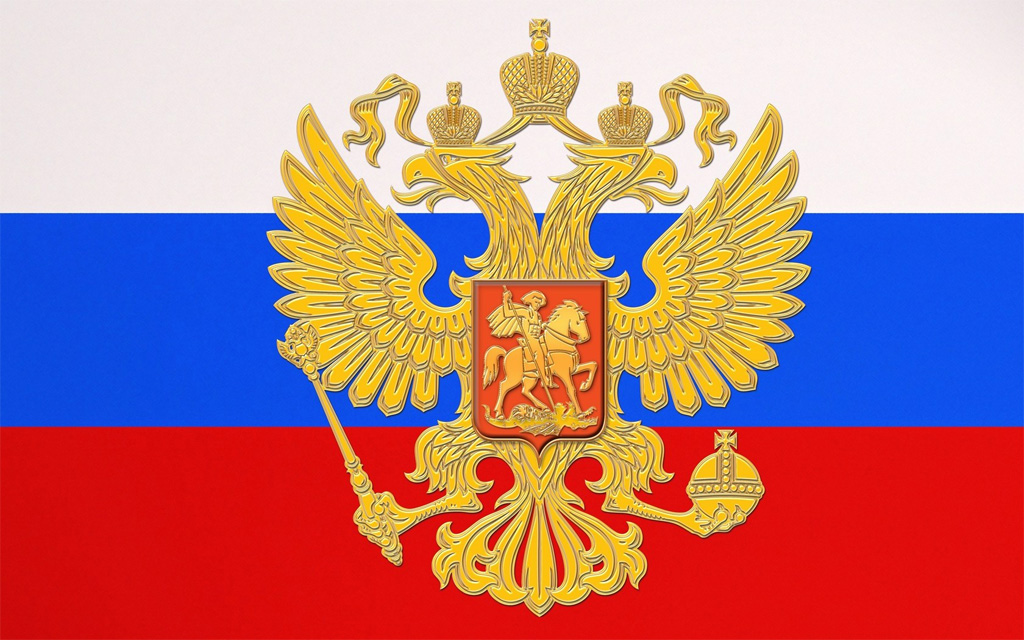Beyond Borders and Words: Russian Language Learning as a Pathway to Cross-Cultural Understanding — The Egyptian Experience

Prepared by the researche : Maryam Abdelhay, PhD Researcher at the Faculty of Economics and Political Science, Cairo University – Researcher specializing in African Affairs.
DAC Democratic Arabic Center GmbH
Rationale for Choosing the Topic
The choice of this topic stems from a deep belief that languages are more than systems of words — they are vessels of identity, memory, and diplomacy. Among the world’s major languages, Russian stands out as a bridge of culture and intellect, connecting continents and shaping international dialogue for centuries.
The motivation to explore this subject emerged from observing how the Russian language has increasingly become a gateway for cultural exchange between Egypt and the Russian Federation. As an Egyptian researcher focusing on Africa and global cooperation, I have witnessed how linguistic interaction can pave the way for understanding, respect, and collaboration between societies that share rich histories and aspirations.
This project aims to capture the human and cultural dimensions of learning Russian — not only as an academic endeavor but as a living practice that unites people beyond geography and politics. Egypt, in this context, represents a vivid and inspiring case study.
Structure of the Article
- The Global Presence and Cultural Power of the Russian Language
- Bridging Civilizations: The Rise of Russian Language Education in Egypt
- Inside the Egyptian Classroom: Stories of Passion, Challenges, and Discovery.
- Cultural Diplomacy in Action: How Language Connects People and Policies.
- The Future Ahead: Strengthening the Egyptian–Russian Linguistic Dialogue.
Introduction
In today’s interconnected world, language stands as one of humanity’s most powerful instruments of connection. It carries within it the echoes of history, the pulse of culture, and the promise of understanding. Among global tongues,the Russian language occupies a unique position — it is both the voice of one of the world’s great literary and scientific traditions and a symbol of enduring global influence.
Spoken by more than 250 million people across over 30 countries, Russian has long transcended national boundaries to become a language of diplomacy, art, and education. From Dostoevsky’s human depth to Tchaikovsky’s emotional resonance, from space science to international relations, Russian culture continues to inspire and engage learners worldwide.
Across continents, interest in learning Russian has surged anew. In universities from Asia to Africa, classrooms are filling with students eager to access Russia’s cultural and intellectual heritage. Yet few places embody this trend more vividly than Egypt, where the study of Russian has evolved from a niche pursuit into a vibrant platform for cultural exchange.[1]
In Egypt, the Russian language is not merely studied — it is experienced. Through classrooms, cultural centers, and digital spaces, Egyptian learners are discovering a pathway that links the warmth of their own civilization with the depth of Russian culture. Their stories reveal that learning Russian is, at its core, an act of building bridges — between words, between worlds, and ultimately, between hearts. [2]
1- The Global Presence and Cultural Power of the Russian Language
The Russian language holds a significant place in the global linguistic landscape, not just in terms of sheer numbers, but also as a cultural, diplomatic, and educational force. According to UNESCO, there are over 250 million speakers of Russian worldwide. This total includes both native speakers and those who use Russian as a second language in many post-Soviet states and other regions of Eurasia.[3]
Russian serves as an official or recognized minority language in countries beyond the Russian Federation, such as Belarus, Kazakhstan, Kyrgyzstan, and several Baltic and Caucasus nations. Because of its wide usage, Russian plays an important role in cross-border communication, media, scientific research, and international relations.[4]
Culturally, Russia has produced a rich literary tradition — from Fyodor Dostoevsky to Leo Tolstoy, from Alexander Pushkin to Anton Chekhov — works that are studied, translated, and revered worldwide. These literary achievements are core to Russia’s soft power: they extend the influence of Russian language and culture through education, translation, performing arts, film, music, and diplomacy.[5]
In scholarly terms, research such as “Russian Language in the Global Linguocultural Space” emphasizes the plurality of roles Russian plays: as a mother tongue, a lingua franca in certain contexts, a medium of education, and a vehicle for cultural identity and memory.[6]
2- Bridging Civilizations: The Rise of Russian Language Education in Egypt
The study of the Russian language in Egypt reflects a broader historical and cultural dialogue that has evolved over decades of diplomatic and educational cooperation. Since the 1950s, when Egypt and the Soviet Union first established close political and academic ties, Russian has gradually become a bridge connecting the intellectual traditions of both nations. In recent years, this connection has deepened, marked by growing numbers of Egyptian students enrolling in Russian language programs, cultural centers, and exchange initiatives. The Russian Cultural Centre in Cairo, established in 1956, continues to play a pivotal role in fostering linguistic and cultural understanding between the two societies.[7]
The recent revival of interest in learning Russian in Egypt coincides with global trends in linguistic diversification and cultural diplomacy. While English and French have traditionally dominated Egypt’s foreign language education, Russian is increasingly viewed as a language of opportunity — offering access to scholarships, scientific research, and emerging business partnerships with Russia. According to data from Egypt’s Ministry of Higher Education, several Egyptian universities, including Ain Shams, Cairo, and Alexandria University, have expanded or introduced Russian studies programs to meet this growing demand.[8]
Comparatively, Egypt’s approach to Russian language instruction stands out in the Arab world. Unlike many Middle Eastern nations that focus primarily on Western languages, Egypt has cultivated a balanced linguistic model that integrates Russian as a strategic asset for diplomacy, culture, and trade. This mirrors patterns seen in countries such as China and India, where Russian is also valued as a bridge to Eurasian scientific and technological collaboration. Such comparative trends highlight how linguistic diversity reinforces Egypt’s vision of becoming a regional hub for intercultural dialogue and academic exchange.[9]
Beyond academic boundaries, Russian language learning in Egypt carries a symbolic weight — it represents a dialogue between two civilizations that share deep respect for culture, education, and international cooperation. Egyptian students studying Russian often express admiration for its complexity and poetic depth, viewing it not only as a tool for communication but as a path toward mutual understanding. This human dimension — where language becomes both a cultural encounter and a diplomatic gesture — illustrates how linguistic exchange can transcend politics and build enduring bridges between peoples.[10]
3- Inside the Egyptian Classroom: Stories of Passion, Challenges, and Discovery
In today’s Egypt, the Russian language is no longer confined to textbooks — it is alive in classrooms, universities, and cultural centers across the country. From the lecture halls of Cairo University to the language labs of Alexandria University, a new generation of Egyptians is embracing Russian not just as a foreign language but as a bridge to opportunity and understanding. The Russian Cultural Centre in Cairo and the Russian House in Alexandria have become vibrant meeting points where students gather for film screenings, literary readings, and conversations with native speakers — moments that transform learning into cultural discovery.[11]
Take, for instance, Mariam, a student at Ain Shams University who began learning Russian to explore the works of Dostoevsky in their original language. She recalls how reading Crime and Punishment in Russian revealed nuances of thought and emotion that translation could not fully capture. Others, like Ahmed, a tourism major, view Russian as a career tool — “In Sharm El-Sheikh and Hurghada,” he says, “you hear Russian as often as Arabic or English. Speaking it fluently opens doors in Egypt’s tourism industry.” These individual stories illustrate how Russian is becoming part of Egypt’s socio-economic and cultural fabric.[12]
Yet, the path is not always easy. Students frequently describe Russian grammar as “a puzzle of cases and endings,” and the Cyrillic alphabet as an early obstacle. Teachers at Cairo University note that maintaining motivation is key — so they blend traditional instruction with creative methods, such as Russian song competitions, theatre performances, and cultural weeks that celebrate Russian holidays like Maslenitsa. In 2024, for example, the Russian Cultural Centre in Cairo hosted a Russian Film Festival, attracting dozens of students eager to practice listening comprehension through art and cinema. These interactive experiences help bridge linguistic challenges through cultural engagement.[13]
Meanwhile, Egyptian universities are deepening academic cooperation with their Russian counterparts. Programs with RUDN University and Moscow State University have introduced digital exchange courses, allowing Egyptian students to attend online seminars led by Russian professors. In 2023, the Ministry of Higher Education reported a rise in joint degrees and scholarships offered through the Rossotrudnichestvo program, enabling Egyptian students to pursue postgraduate studies in linguistics, political science, and international relations in Russia. Such initiatives illustrate how education and diplomacy intertwine through language.[14]
Beyond the institutional achievements lies something more profound — a story of human connection. Egyptian students often describe how learning Russian reshapes their worldview: they begin to see themselves as part of a wider global dialogue. For many, a simple exchange — a handwritten letter to a Russian pen pal, a shared song, a translated poem — becomes a bridge between two worlds. In these classrooms, language transforms from syntax to empathy, from grammar to genuine dialogue. It is in these small, everyday moments that Egypt’s cultural diplomacy takes root, proving that education remains the most enduring form of international friendship.[15]
- Bridging Worlds Through Language: How Russian Connects Egypt to a Broader Global Dialogue
In a rapidly changing world, language is more than a tool of communication — it is a bridge of understanding, identity, and shared values. For many Egyptians, learning Russian opens a window to a new cultural universe — one that intertwines history, art, science, and diplomacy. The growing interest in Russian language studies in Egypt reflects a broader global trend where cross-cultural dialogue becomes essential for cooperation and peacebuilding.[16]
Across universities and cultural institutions, Russian language programs are increasingly linked with international exchange projects, scientific collaboration, and digital diplomacy initiatives. The 2024 cooperation agreement between Egypt’s Ministry of Higher Education and the Pushkin State Russian Language Institute, for instance, introduced hybrid courses combining linguistic training with modules on Russian media, cultural studies, and international relations. These programs illustrate how education serves as a form of soft diplomacy, connecting societies through mutual respect and shared curiosity.[17]
Egyptian and Russian youth now participate in joint workshops, online forums, and cultural festivals that highlight the importance of multilingualism in global citizenship. Events such as the Russian Language Week in Africa (organized by Rossotrudnichestvo in 2023) showcased the growing role of Russian as a bridge between Africa and Eurasia, strengthening people-to-people ties through creativity and dialogue. Egyptian participants described the event as “a journey of linguistic and cultural discovery” that deepened their sense of belonging to a shared global narrative.[18]
Ultimately, learning Russian in Egypt is not just about mastering a language — it is about building bridges. Each classroom, each translated poem, and each dialogue between Egyptian and Russian students becomes a testament to the enduring power of cultural connection. In this sense, the Russian language serves not merely as an academic discipline, but as a living instrument of understanding — linking Cairo to Moscow, Alexandria to St. Petersburg, and young minds to the wider world.[19]
- The Future Ahead: Strengthening the Egyptian–Russian Linguistic Dialogue
As the world moves toward greater interdependence, language remains one of humanity’s most enduring instruments of diplomacy and understanding. The growing interest in Russian studies in Egypt is more than an educational trend — it is a sign of a deeper cultural awakening. Through every classroom interaction, exchange program, and translated poem, Egyptians and Russians are rediscovering the value of dialogue in an age too often defined by division.[20]
The future of Russian language education in Egypt will likely be shaped by new technologies, hybrid learning models, and expanded cultural partnerships. Initiatives such as online exchange programs between Egyptian universities and institutions like Moscow State Linguistic University and RUDN University point toward a digital future of cross-border learning. Moreover, the continued engagement of the Russian Cultural Centre and Rossotrudnichestvo ensures that language learning remains rooted in culture, history, and human connection.[21]
In this evolving landscape, Egypt stands as a model of how education can serve as a channel for mutual respect and collaboration. The story of learning Russian in Egypt is not merely about grammar and vocabulary — it is about empathy, curiosity, and the courage to engage with another culture. It is about two civilizations meeting in words, discovering in language a shared space of peace and creativity.[22]
Conclusion: The journey of Russian language education in Egypt mirrors a timeless truth: that words have the power to unite where politics may divide. From the halls of universities to the warmth of cultural centers, a quiet yet powerful dialogue continues — one built on shared learning, cultural respect, and human connection. As Egypt and Russia deepen their educational and cultural cooperation, the Russian language emerges as more than a subject of study — it becomes a bridge of understanding, a vessel of friendship, and a symbol of the enduring partnership between two nations whose histories, though distinct, converge in their belief in knowledge as the path to peace.
[1] UNESCO, “Russian Language Day,” June 6, 2023, https://www.unesco.org/en/articles/russian-language-day
[2] UNRIC, “Russian Language: Many Shades of Blue,” accessed October 11, 2025, https://unric.org/en/russian-language-many-shades-of-blue/
[3] Berlitz, “25 Most Spoken Languages in the World in 2025,” March 27, 2025, https://www.berlitz.com/blog/most-spoken-languages-world
[4] University of Georgia, “Why Learn Russian?” accessed October 11, 2025, https://www.gsstudies.uga.edu/why-learn-russian
[5] RUDN Journal of Language Studies, Semiotics and Semantics, “Russian Language in the Context of Russian-Spanish Language Contact,” Vol. 14, No. 1 (2023): https://journals.rudn.ru/semiotics-semantics/article/view/29887
[6] Bondareva, V.V. “Using the Phonological Approach to Describe the Vocal System of the Russian Language in the Context of Russian-Spanish Language Contact.” RUDN Journal of Language Studies, Semiotics and Semantics 14, no. 1 (2023). https://journals.rudn.ru/semiotics-semantics/article/view/29887
[7] Russian Cultural Centre in Cairo. “Russian Culture in Egypt.” Accessed October 11, 2025. https://russiancultureinegypt.com/en/
[8] Embassy of the Russian Federation to the Arab Republic of Egypt. “Embassy.” Accessed October 11, 2025. https://egypt.mid.ru/en/embassy/
[9] TASS Russian News Agency. “DPR Head Announces Improvement of Russian Forces’ Positions Near Artyomovsk.” TASS Russian News Agency. Accessed October 11, 2025. https://tass.com/politics/1578345
[10] Ministry of Higher Education and Scientific Research of Egypt. “Home.” Accessed October 11, 2025. https://mohe.gov.eg/en/Pages/default.aspx
[11] Russian Cultural Centre in Cairo. “Russian Cultural Centre in Cairo.” Accessed October 11, 2025. https://russiancultureinegypt.com/en/
[12] Russia Beyond. “Egypt’s Russian Language Popularity.” Accessed October 11, 2025. https://www.rbth.com/education/334690-egypt-russian-language-popularity
[13] Egypt Independent. “Egypt Independent.” Accessed October 11, 2025. https://www.egyptindependent.com/
[14] UNESCO. “Wider Use of the Russian Language; Report by the Director-General.” UNESCO General Conference Paper, 1985. https://unesdoc.unesco.org/ark:/48223/pf0000372541
[15] UNRIC. “Languages and Global Dialogue.” Accessed October 11, 2025. https://unric.org/en/languages-and-global-dialogue/
[16] Pushkin State Russian Language Institute. “Pushkin State Russian Language Institute.” Accessed October 11, 2025. https://pushkin.institute/en
[17] Ministry of Higher Education and Scientific Research (Egypt). “Home.” Accessed October 11, 2025. https://portal.mohesr.gov.eg/ar-eg/Pages/default.aspx
[18] Ministry of Culture of the Russian Federation. “Ministry of Culture of the Russian Federation.” Accessed October 11, 2025. https://culture.gov.ru/en/
[19] Moscow State Linguistic University. “Linguanet.” Accessed October 11, 2025. https://linguanet.ru/en/
[20] Peoples’ Friendship University of Russia. “RUDN University.” Accessed October 11, 2025. https://eng.rudn.ru/
[21] Russian Ministry of Culture. “Ministry of Culture of the Russian Federation.” Accessed October 11, 2025. https://government.ru/en/department/27/
[22] UNESCO. “Wider Use of the Russian Language; Report by the Director-General.” UNESCO General Conference Paper, 1985. https://unesdoc.unesco.org/ark:/48223/pf0000372541




